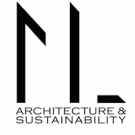Latrobe Valley 2012
Global Competition // SHORTLISTED
Team: Mariana Lorena, Sandra Furtado, Pedro Vozone and Andrew Cochrane
Once in a generation, an opportunity is presented to remake a region and recast it for the future. Interventions such as Hausmann’s Paris from the 1850’s, Cerda’s Barcelona plan in the 1860’s, to Lerner’s Curitiba in the 1970’s, required a vision that has defined and transformed these cities. With their Transiting Cities project, Latrobe City is also taking the visionary steps to truly define their region as one of opportunity, diversity and sustainability for generations to come.
Our proposal provides the blueprint for the creation of a progressive, regenerative and dynamic community with sustainability & low carbon at its heart. Such change will bring significant benefits to the region, creating one of the most progressive regions not only in Victoria & Australia; but globally.
This is where it comes back into balance and where we can play, live, love and learn together. Welcome to the future.
2012 Hult Global Challenge
Global Competition // SHORTLISTED
Team: Mariana Lorena, Sandra Furtado, Andrew Cochrane, Jacqui Bonitcha, Marisol Quesada
The world is experiencing a phase like no other in the history of civilization, more than half the world’s population lives in cities, economic growth in developing economies is unprecedented and at the same time the world faces the challenge of climate change and its effects on the global economy and poverty levels. We are at a point in time where economic; social and environmental imperatives need to be considered collectively.
So... What can Habitat For Humanity do to provide 10 million houses in 10 years for those in need?
With HFHI reorganized at the centre of the system as an enabler, they can move from an individual focus to a community focus. Building communities enables scaling and leverage via ‘crowd sourcing’ solutions beyond their immediate sphere of understanding & control.
Through fostering & enhancing community structures HFHI can both scale up and enable change. By encouraging ownership of the issues and process within community, skills and knowledge are shared, partnerships formed and capacity is built enabling HFHI to scale up. This leads to poverty reduction, increased resilience and improved housing outcomes…
Within our balanced concept, HFHI can then leverage the inputs to the delivery of housing (finance, materials, labour, land etc) by engaging communities via methods such as crowd sourcing including investors, skills & partnerships, as well as community action plans and community contracts.
Taking the industrial ecology route for sustainability, we can then investigate the materiality supply within the system, turning unwanted materials into useful resources; reducing the unsustainability of their provision whilst simultaneously improving outcomes.
Through the concept of communities, HFHI creates networks of partners related to their mission.
Building communities and enabling knowledge & technology exchange, skills building, as well as an effective volunteer program have enabled communities to deliver on the ground. Strategies such as community action plans have enabled Sri Lanka (a country of just 20 million people) to deliver 2 million homes in 10 years; an average annual return of 1%. If we applied this same rate to the 1.6billion in need identified by HFHI, a result of 16,000,000 is arrived at; an extraordinary outcome in anyone’s language and a solution right there.
Other strategies include the crowd sourcing of labour as evidenced in the UN framework.
Adding resources to community enables housing to be build. Through the development of a network of partners it is possible to crowd source the materials currently in the system including C & D, the manufacturing process, the building industry and global surplus.
Partners within the industrial process such as production & reprocessing companies and as well as transport logistics enable materials to be sourced and moved as required. Whilst much of the resource is located in the country of need and doesn’t require significant relocation, the opportunity exists to utilize the negative space within transport networks to efficiently move these.
So there it is, a full solution that addresses HFHI’s ambitions and demonstrates the potential to do good and do it well. It is non discriminatory; it applies across jurisdictions regardless of geography, climate, religion or need. It is available now and will deliver within a system that is just and sustainable.
Building communities and enabling knowledge & technology exchange, skills building, as well as an effective volunteer program have enabled communities to deliver on the ground. Strategies such as community action plans have enabled Sri Lanka (a country of just 20 million people) to deliver 2 million homes in 10 years; an average annual return of 1%. If we applied this same rate to the 1.6billion in need identified by HFHI, a result of 16,000,000 is arrived at; an extraordinary outcome in anyone’s language and a solution right there.
Other strategies include the crowd sourcing of labour as evidenced in the UN framework.
Adding resources to community enables housing to be build. Through the development of a network of partners it is possible to crowd source the materials currently in the system including C & D, the manufacturing process, the building industry and global surplus.
Partners within the industrial process such as production & reprocessing companies and as well as transport logistics enable materials to be sourced and moved as required. Whilst much of the resource is located in the country of need and doesn’t require significant relocation, the opportunity exists to utilize the negative space within transport networks to efficiently move these.
So there it is, a full solution that addresses HFHI’s ambitions and demonstrates the potential to do good and do it well. It is non discriminatory; it applies across jurisdictions regardless of geography, climate, religion or need. It is available now and will deliver within a system that is just and sustainable.

